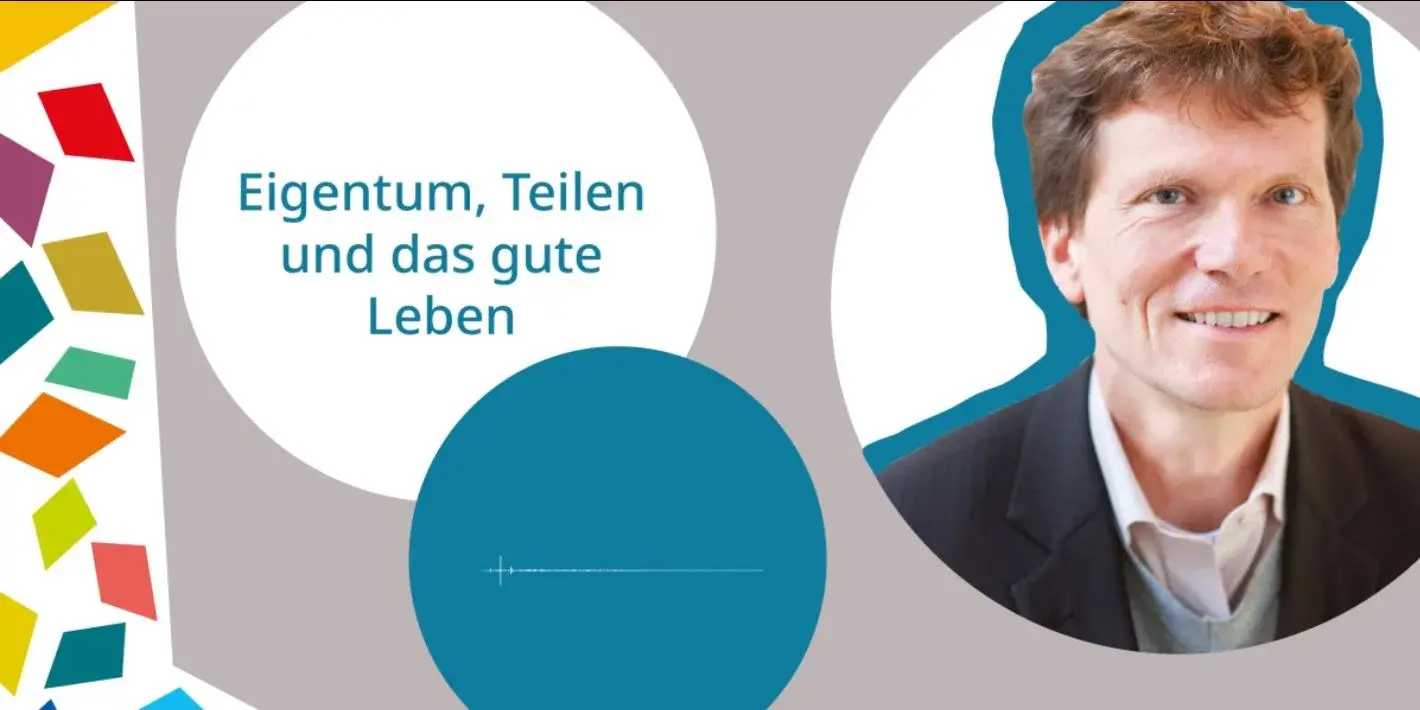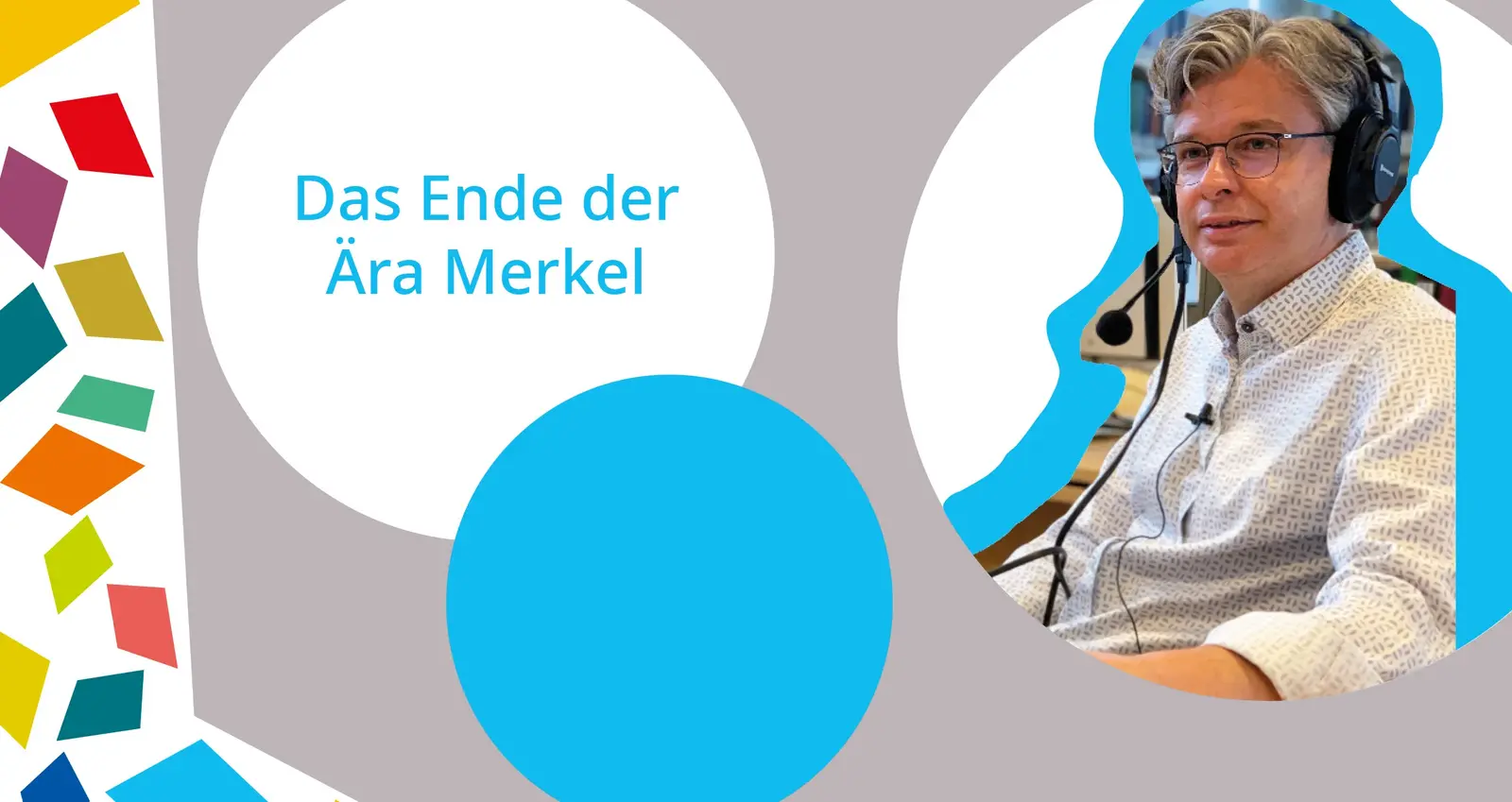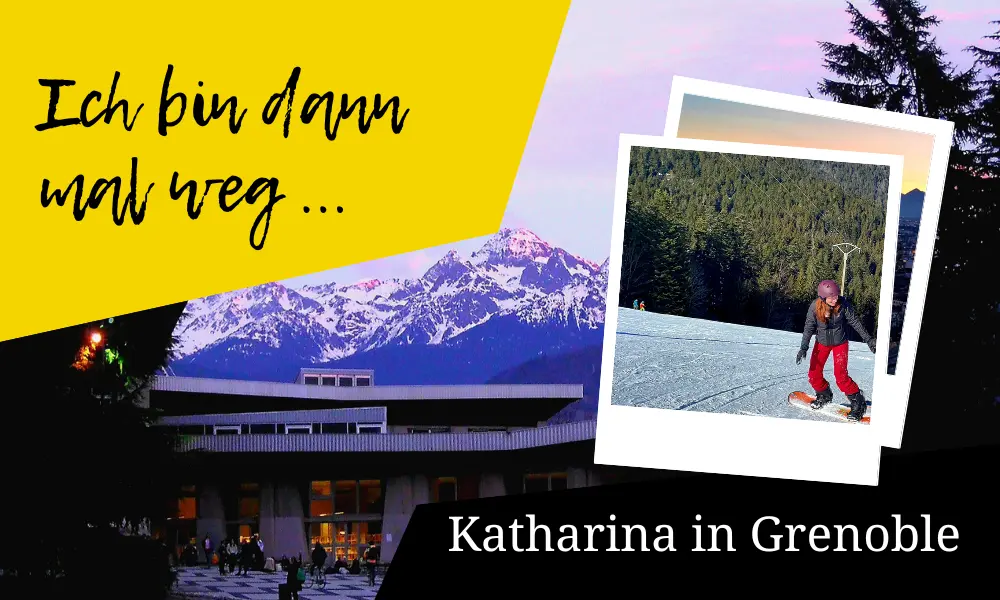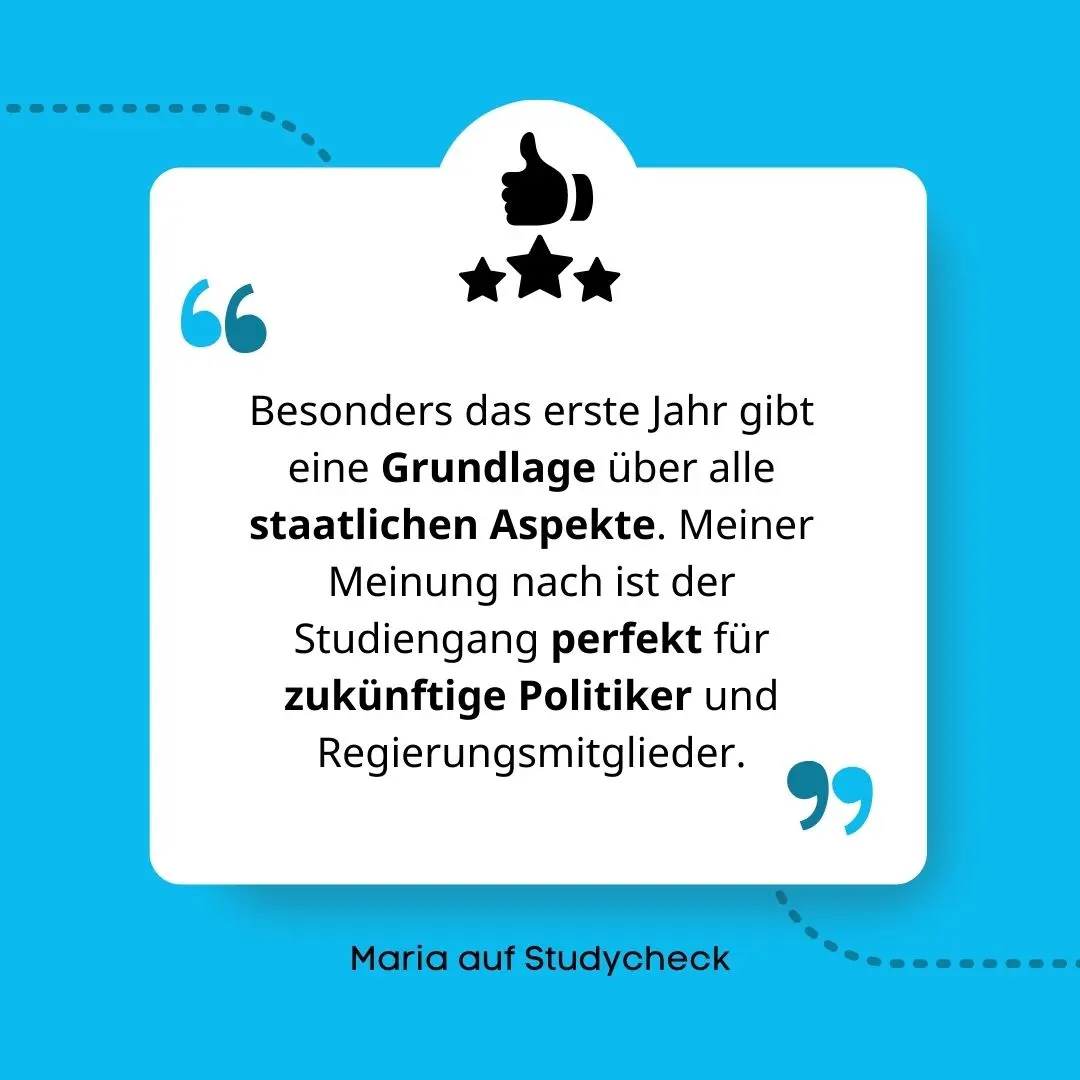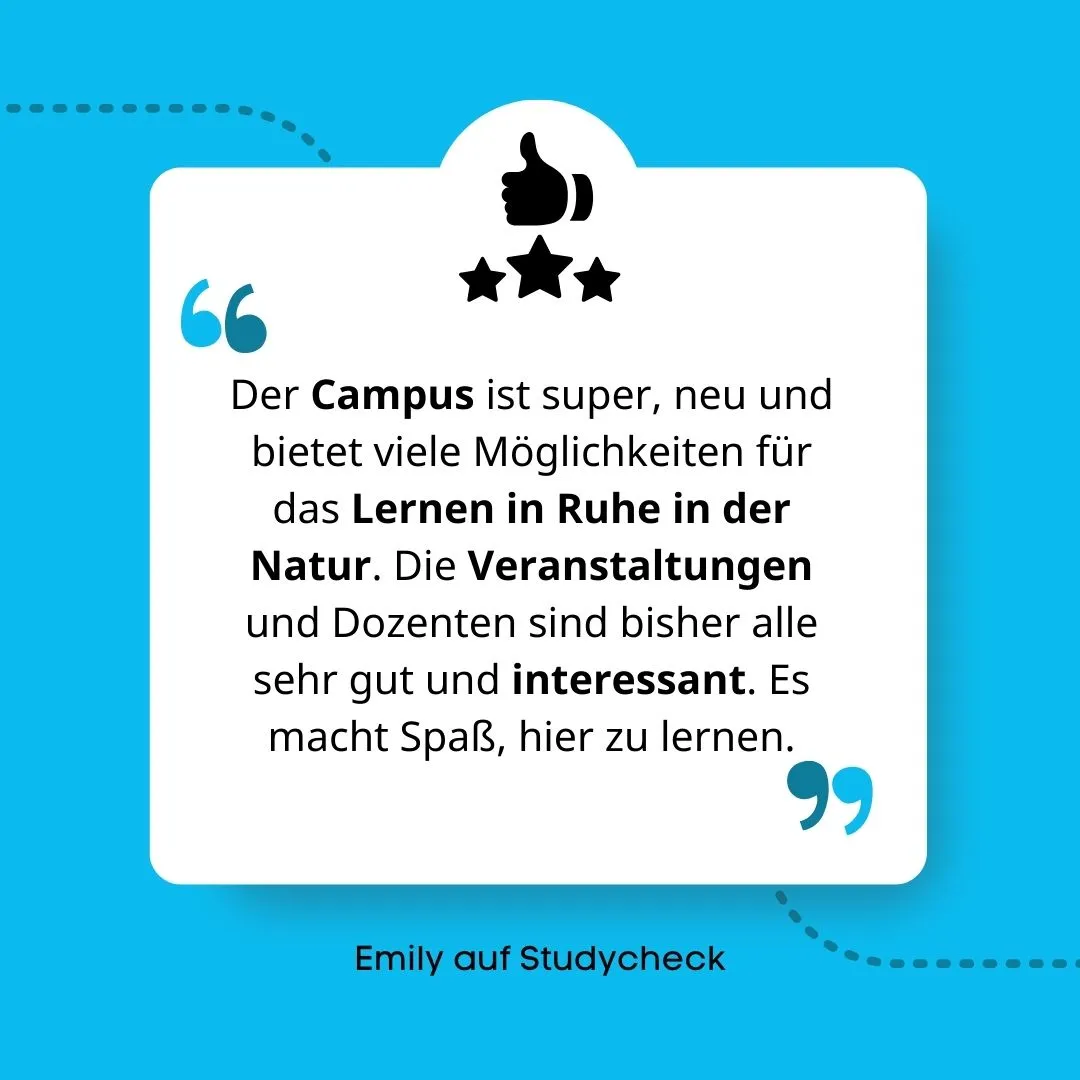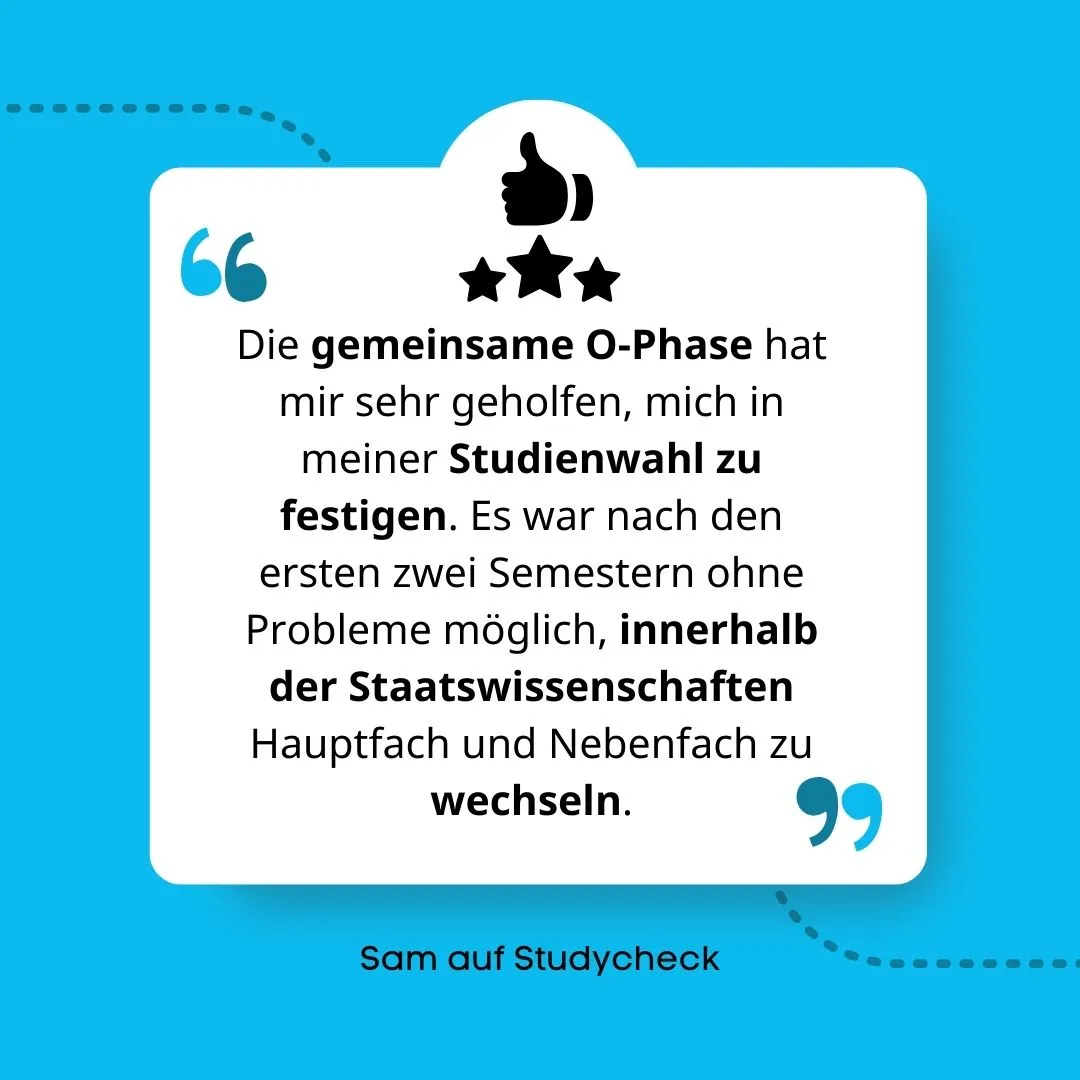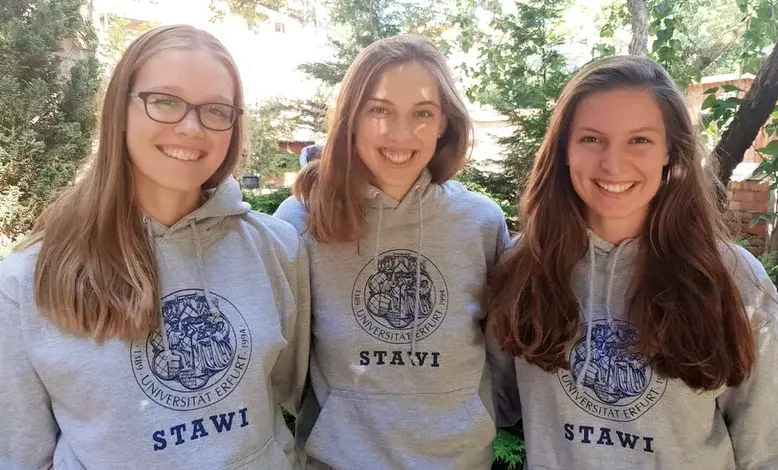Economics, Law and Social Sciences – Social Sciences concentration
Course Details
The increasing global integration of politics, law, economy and culture is one of the greatest challenges of our time. Interdisciplinary knowledge, as conveyed in the Faculty of Economics, Law and Social Sciences at the University of Erfurt, is therefore becoming increasingly important.
Our Degree programmes combine the three subject areas :
- Law
- Social Sciences (political science and sociology)
- Economics
In the major and minor in Social Sciences you will deal with social orders, institutions and organisations. The social sciences focus on the question of how political and social arrangements are created, reproduced and transformed.
In researching these connections, they emphasize historical, international and cultural comparison. In addition, the emphasis of method training highlights the role of social research as a science as well as knowledge of the methods of applied social research.
- Constitutional Law
- International Relations
- Introduction to the social sciences
- Theory of democracy
- Applied statistics and data collection
- Sociology
- The German political system
Economics, Law and Social Sciences at the University of Erfurt - successful and established since 2000
- Political science (e.g. political theory, policy field analysis, analysis of political systems)
- Sociology (e.g. social structure analysis, sociological theory)
Niklas studies Economics, Law and Social Sciences at the University of Erfurt (in German)
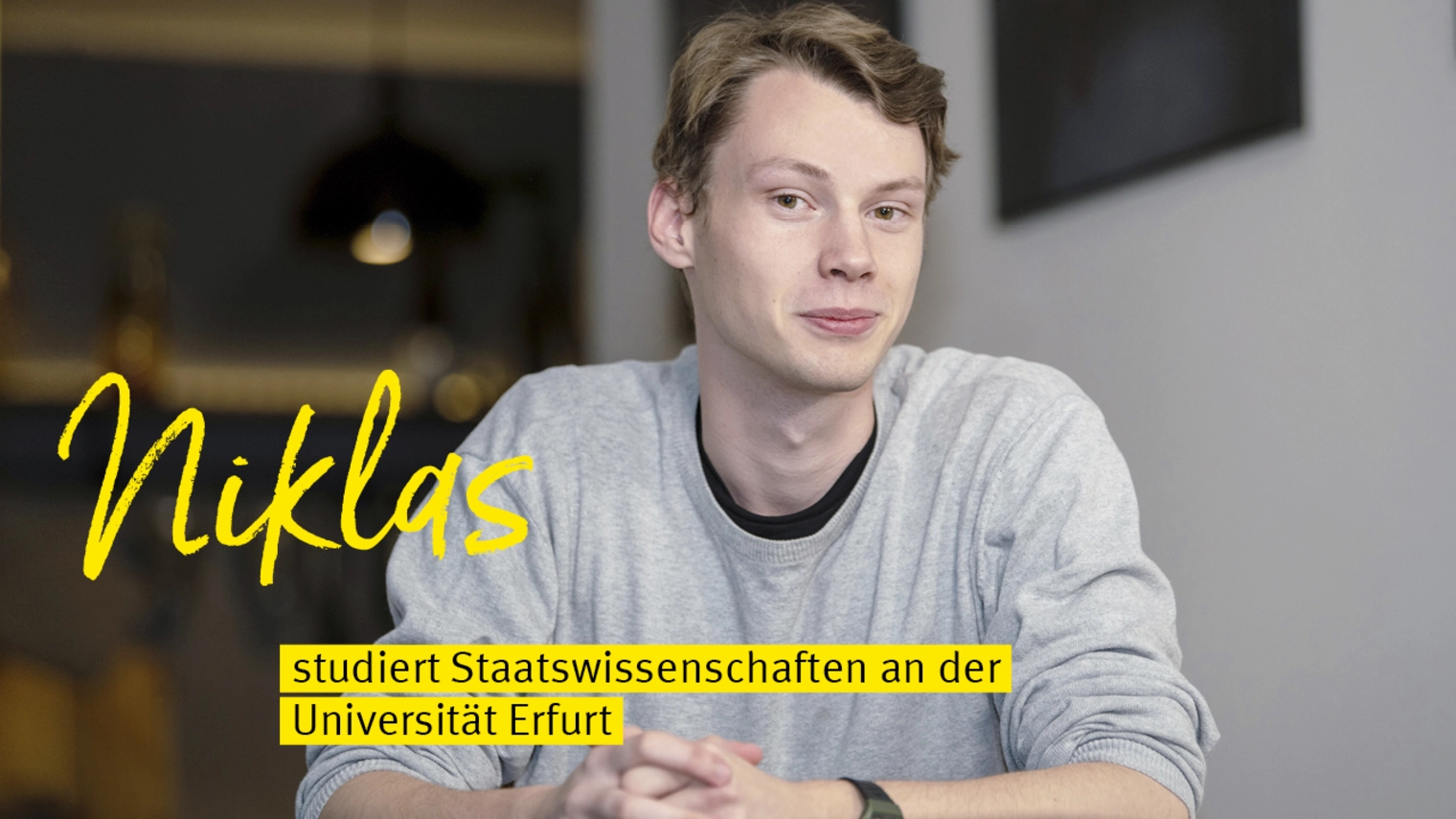
Please note: Once you watch the video, data will be transmitted to Youtube/Google. For more information, see Google Privacy.
Job & Career Perspectives
Our policy experts work, for example:
- in national and international non-governmental organisations (NGOs),
- with parties and associations,
- with foundations,
- in public administration,
- in political and economic consulting,
- in social science research.
Our Alumni (in German)
![[Translate to English:] Video Staatswissenschaft Alumni](/fileadmin/_processed_/7/d/csm_thumbnail-alumni-stawi-uni-erfurt-2_0cd71f6aa6.webp)
Please note: Once you watch the video, data will be transmitted to Youtube/Google. For more information, see Google Privacy.
Details of the degree programme
Orientation phase (1st - 2nd semester)
If you combine the subject of Social Sciences with a focus on Political Science and Sociology with a minor from the Faculty of Economics, Law and Social Sciences - Law concentration (International Relations, Management, Law or Economics), you will take part in the joint orientation phase of Economics, Law and Social Sciences - Social Science concentration.
Compulsory modules:
- Fundamentals of Law I (6 CP)
- Constitutional Law (6 CP)
- Civil Law I (6 CP)
- Fundamentals of Social Sciences: International Relations (6 CP)
- Social Science Foundations: Introduction to the Social Sciences (6 CP)
- Fundamentals of Social Sciences: Statistics (6 CP)
- Introduction to Business Administration (6 CP)
- Introduction to Microeconomics (6 CP)
- Introduction to Macroeconomics and Economic Policy (6 CP)
and a Q-phase module of the major or minor subject (open for the O-phase)
If you have combined the subject Social Sciences with a minor outside the Faculty of Economics, Law and Social Sciences - Law concentration (not International Relations, Management, Law or Economics):
Compulsory modules:
- Constitutional Law (6 CP)
- Fundamentals of Social Sciences: International Relations (6 CP)
- Social Science Foundations: Introduction to the Social Sciences (6 CP)
- Fundamentals of Social Sciences: Statistics (6 CP)
Compulsory elective modules:
- Fundamentals of Law I (6 CP)
- Civil Law I (6 CP)
- Introduction to Business Administration (6 CP)
- Introduction to Microeconomics (6 CP)
- Introduction to Macroeconomics and Economic Policy (6 CP)
Qualification phase (3rd-6th semester)
Basic modules:
- Fundamentals of Social Sciences: Theory of Democracy (6 CP)
- Social Science Foundations: Applied Statistics and Data Collection (6 CP)
- Social Science Foundations: Sociology (6 CP)
- Social Science Basics: The German Political System (6 CP)
Specialisation modules:
- International Political Economy (6 CP)
- Normative Foundations of World Politics (6 CP)
- Foreign Policy and Security (6 CP)
- Quantitative Methods (6 CP)
- Qualitative Methods (6 CP)
- Research Seminar (6 CP)
- History of Political Ideas (6 CP)
- Basic concepts of political theory (6 CP)
- Political Theories of the Present (6 CP)
- Social Structure Analysis (6 CP)
- Sociological Theory (6 CP)
- Political Sociology (6 CP)
- Political Field Analysis (6 CP)
- Political Institutions (6 CP)
- Analysis of political systems (6 CP)
- Additional module: Fields of research (6 CP)
- Additional module: Fundamentals of Political Education (6 CP)
Further Master's programmes at the University of Erfurt
You can follow the Bachelor's programme in Social Sciences (Sociology and Political Science) with the following Master's programmes:
Master's programme Democracy and Economy
Master's programme in Public Policy
Master's programme Economics, Law and Social Sciences
Master of Education in Vocational Schools
You may also be interested in these degree programmes:
Bachelor's programmes in the fields of society, politics, law and economics:
Bachelor's programme in International Relations
Bachelor's programme Management
Bachelor's programme Economics, Law and Social Sciences - Law concentration
Bachelor's programme Economics, Law and Social Sciences - Economics concentration
Admission requirements
Language requirements for the social sciences degree programme
Before starting the programme:
- English language level B2
Language Centre
The Language Centre offers around 140 language courses per semester in 16 modern and old (foreign) languages. It supports you in acquiring and improving your language skills.
Study social sciences without NC
There are currently no admission restrictions (without admissions restricted courses) for Social Sciences with a major in Political Science and Sociology (Economics, Law and Social Sciences). If you meet the admission requirements, you can enrol directly in the degree programme or apply to combine it with a major or minor subject with admission restrictions (see application).
What the students say...
The seminars are particularly enriching. The informal atmosphere gives you the feeling that you will soon know all the lecturers well. The interdisciplinary nature of the degree programme also highlights other exciting degree programmes, especially law and economics.
Assessment by Carl at Studycheck
There really is a lot more to this subject area than you might first think. Especially due to the super motivating university lecturers who show enthusiasm and pass this on to you. Especially due to the "smaller number" of students, every student is really recognised and can approach the contact persons with their concerns.
Rating from Fran at Studycheck
The degree programme is very interesting because it is interdisciplinary. This means that social sciences, law and economics are dealt with together. This gives you a good overview of the elective specialisations. The lecture theatres are equipped with modern Technology (for Secondary Schools).
Rating from Lukas at Studycheck
The major and minor subject in Economics, Law and Social Sciences – Social Science concentration is admission-free (without NC).
Application for the two-subject Bachelor's degree:
If you wish to combine Faculty of Economics, Law and Social Sciences – Social Science with an admission-free program (without NC), you can enrol directly from May 1 to September 15.
Enrol now for Economics, Law and Social Scienes - Social Science concentration!
If you wish to combine Faculty of Economics, Law and Social Sciences – Social Science admission-restricted (with NC), please apply from May 1 to July 15 via the following link.
Apply now for Economics, Law and Social Scienes - Social Science concentration!
Come to the Open Day and find out more about the Bachelor's programme in Social Sciences (Political Science/Sociology).




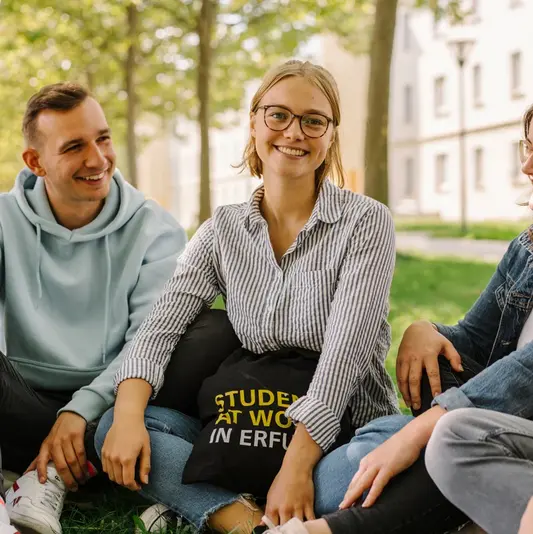
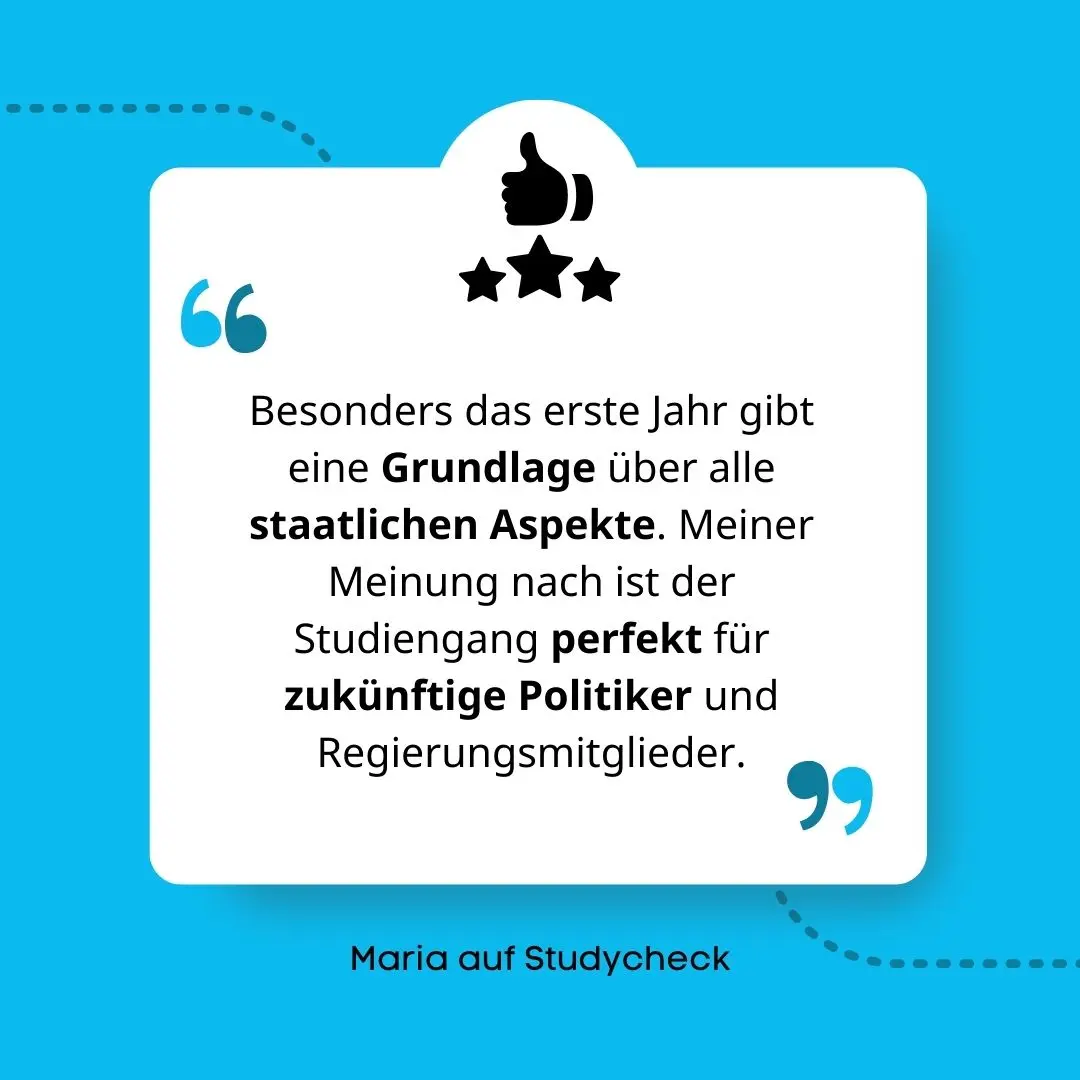
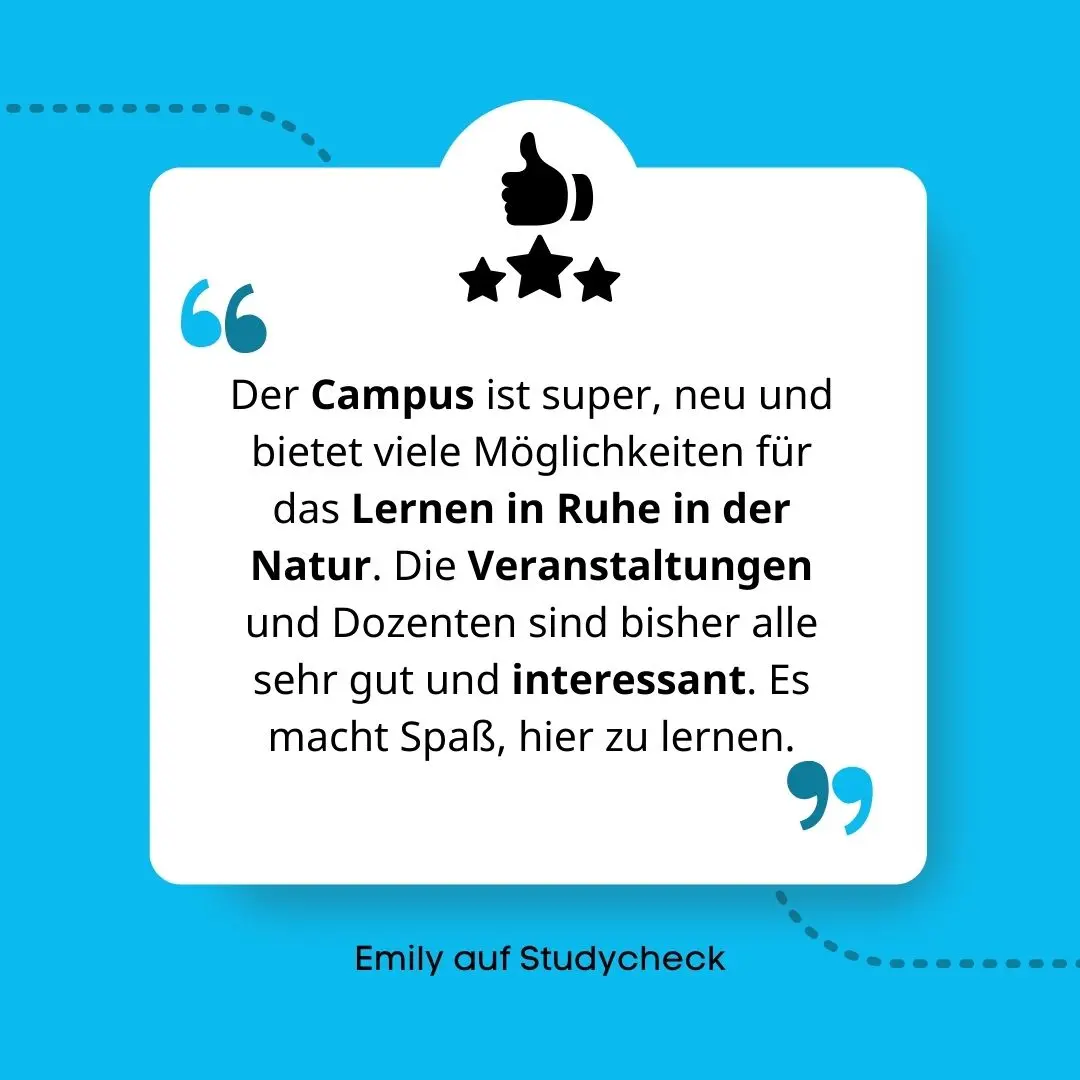
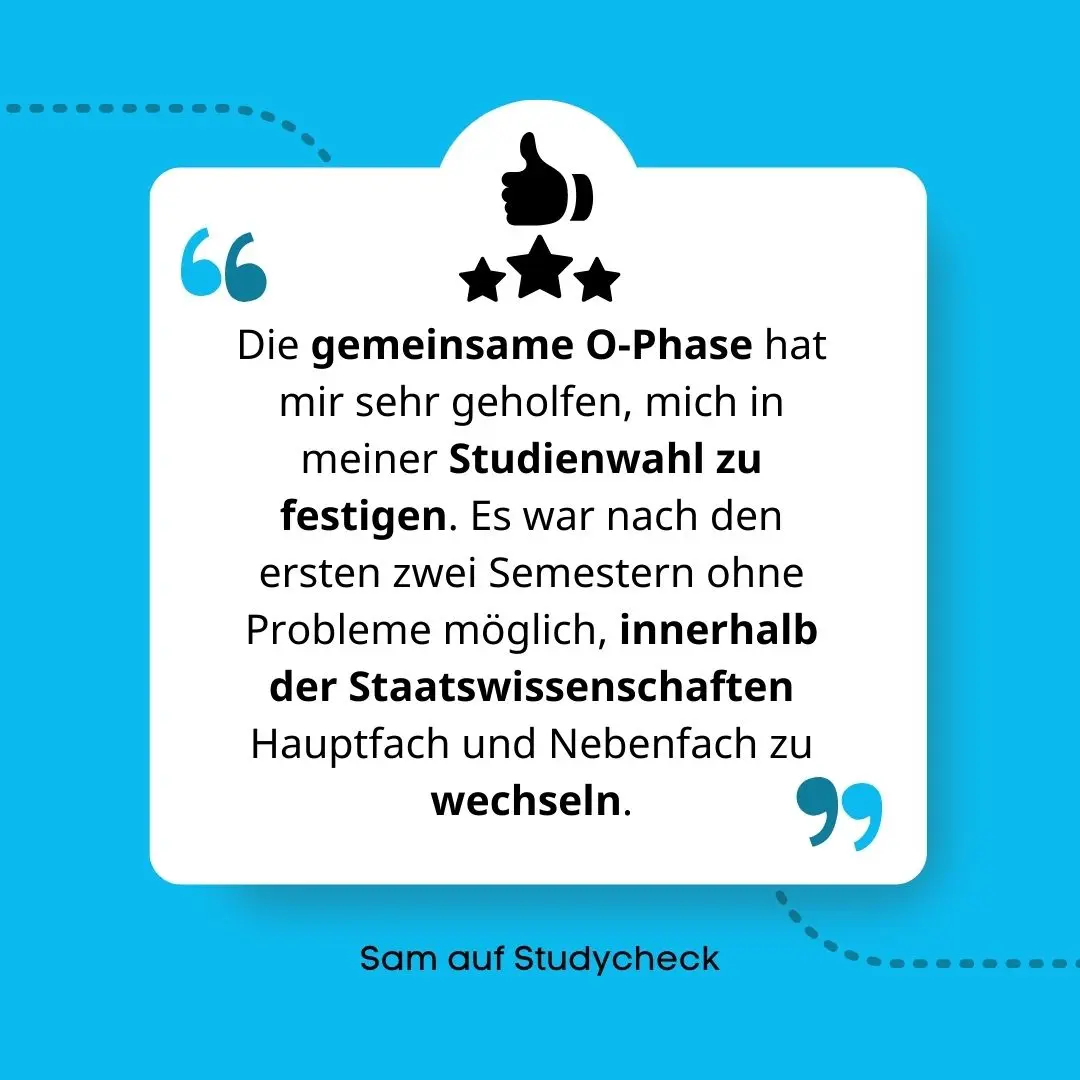

![[Translate to English:] Stawi2b Students](/fileadmin/_processed_/4/b/csm_stawi2b_919585a25f.webp)


